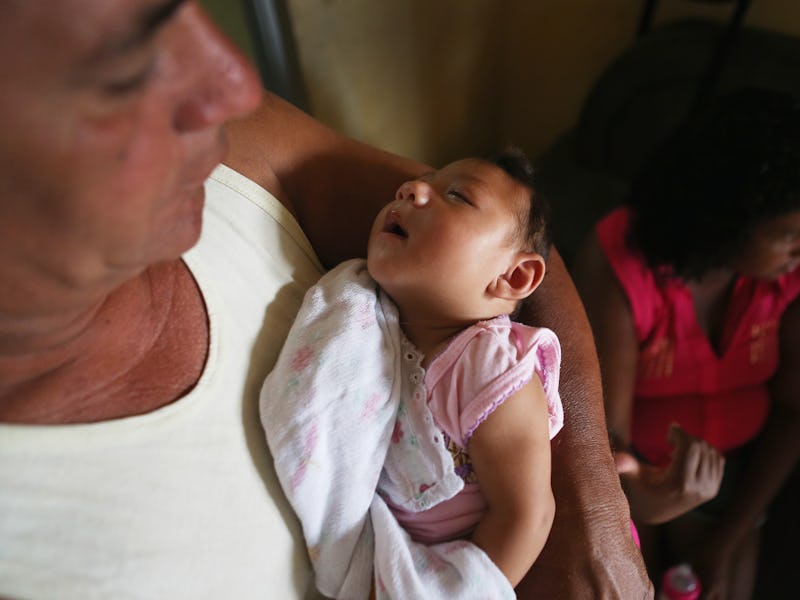As Zika Virus Approaches Pandemic, World Health Executives Plan Emergency Action
The "heartbreaking" outbreak has transitioned "from a mild threat to one of alarming proportions."

Alarm over the Zika virus reached new heights Thursday, as the World Health Organization (WHO) devoted its executive session in Geneva to addressing the growing pandemic.
Dr. Margaret Chan, the Director-General of WHO, said the “heartbreaking” outbreak had transitioned “from a mild threat to one of alarming proportions.”
WHO Director-General Margaret Chan
Dr. Chan also announced a February 1 meeting of the Emergency Committee to decide whether to declare a public health emergency. The virus has reached near pandemic levels since arriving in Brazil in 2015, infecting 1.5 million people in that country.
“The level of alarm is extremely high,” said Dr. Chan.
Dr. Vanessa Van Der Linden, the neuro-pediatrician who first recognized and alerted authorities over the microcephaly crisis in Brazil, measures the head of a 2-month-old baby with microcephaly on January 27, 2016 in Recife, Brazil. The baby's mother was diagnosed with having the Zika virus during her pregnancy.
The virus can cause microcephaly, or abnormal smallness of the head, in infants whose mothers are infected by the disease. It has also been linked to Guillain-Barré syndrome, a disease of the nervous system that eats away at the insulating material — myelin sheaths — that cover our neurons. A certain kind of warm-weather mosquito, known for carrying Dengue fever, also transmits Zika.
“We cannot tolerate the prospect of more babies being born with neurological and other malformations and more people facing the threat of paralysis,” said Dr. Carissa Etienne, the regional-director for the WHO Pan American Health Organization.
Zika began spreading in a relatively small swath of Africa and Asia over the past few decades. The virus recently reached the Americas — where natural immunity is less common — and exploded, already reaching near pandemic levels.
“This year’s El Nino weather patterns are expected to increase mosquito populations greatly in many areas,” said Dr. Chan.
Affected regions include Brazil, Mexico, Haiti, and early reports indicate it has jumped to Puerto Rico and the Dominican Republic. In a sign of the mounting threat, United Airlines recently announced it would offer refunds to anyone planning to travel to affected areas in the Americas.
Officials in the United States currently “don’t believe there will be a major Zika outbreak in the USA,” Dr. Anthony Fauci, director of the National Institutes for Health, told Reuters. “If Zika acts like the other types of viruses that are mosquito-born that we have experience with, like Dengue … we will see little mini outbreaks in Florida and Texas that can be well controlled with mosquito vector control.”
The central challenge posed by Zika is containing the spread of the disease through mosquitoes. Still the animal responsible for the most human deaths every year by far, mosquitoes have long threatened tropical habitats with constantly evolving threats. Climate change is also expected to expand the regions of the world with climates favorable to mosquitos, bringing hundreds of millions of additional people into the path of the deadly carriers.
As of now, officials in affected areas of the Americas are struggling to deal with Zika. The leaders of Colombia, Ecuador, El Salvador, and Jamaica are all urging their female citizens not to get pregnant as long as the pandemic reigns, since the greatest health threats from Zika seem to occur in the womb. It’s not clear how long such a strategy can prevail, so hopefully WHO is ready with some serious backup, like maybe a vaccine.
“I am asking the Committee for advice on the appropriate level of international concern and for recommended measures that should be undertaken in affected countries and elsewhere,” said Dr. Chan about the possibility of declaring the first public health emergency since the ebola outbreak that killed 11,000.
The CDC keeps this list of Zika-affected areas.
This article was originally published on